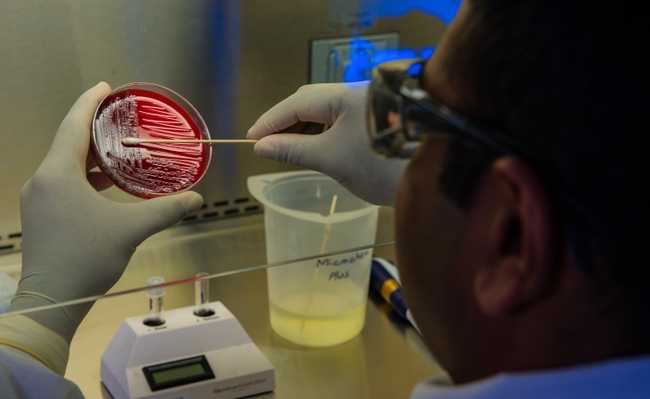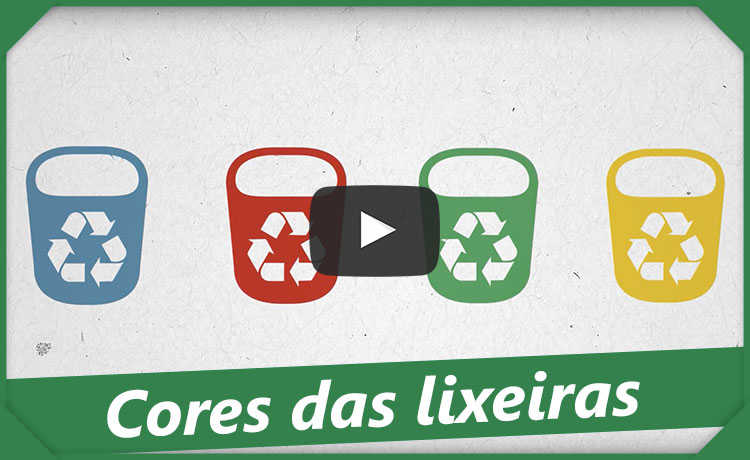Blood donation: requirements, how and where to donate
Donating blood is an easy, fast, safe and supportive process.

Hush Naidoo image in Unsplash
Blood donation is a gesture of solidarity in which a small amount of one's blood is offered to save other people's lives. This act is essential for those who undergo large and complex medical treatments and interventions, such as transfusions, transplants, oncological procedures and surgeries. Blood banks are also essential so that patients with serious chronic diseases - such as Sickle Cell Disease and Thalassemia - can live longer and with better quality, in addition to their vital importance to treat injured people in emergency situations or calamities.
A single blood donation can save up to four lives. Therefore, the Ministry of Health periodically reinforces the importance of Brazilians adopting the solidarity culture of regular and spontaneous blood donation. Know who can donate blood, what are the cares after collection and frequent questions about the donation.
Requirements for blood donation
There are national and international standards for screening people who are eligible to donate blood. In Brazil, the Ministry of Health and the American Association of Blood Banks are the bodies responsible for this control. The requirement of the requirements guarantees the health of those who donate and, especially, of those who will receive the donated blood, since it cannot be contaminated with other diseases and put the patient's quality of life at risk.
The requirements for blood donation are:
- Be between 16 and 69 years old;
- Weigh at least 50 kg;
- Have at least 6 hours of sleep on the last day;
- Being fed and avoiding the consumption of fatty foods before making the blood donation;
- Present original identity document with current photo, issued by the official body (RG, Driver's License, Work or Social Security Card);
- Not having drunk alcoholic beverages in the last 12 hours;
- Not having smoked tobacco for at least 2 hours before blood donation;
- Not having practiced exaggerated physical exercise on the last day.
It is noteworthy that the maximum frequency is four annual blood donations for men and three annual blood donations for women. In addition, the minimum interval between blood donations is two months for men and three months for women.
Who cannot donate blood:
- Children under 16 years old or over 69 years old;
- People under 50 kg;
- People with anemia, unstable blood pressure (hypertension or hypotension), increased or decreased heart rate, or fever;
- People with infectious, chronic and/or blood-borne diseases, such as hepatitis B, hepatitis C, AIDS, HTLV, Chagas disease, leprosy and cancer, are strictly prohibited from donating blood;
- People who use illicit injectable drugs;
- Patients who have already contracted malaria.
How much blood is donated?
An adult person has, on average, five liters of blood. In a donation, a maximum of 450 ml are collected, that is, less than 10% of all the blood present in the body. Blood donation is 100% voluntary and does not harm the body.
Where to donate blood
The Ministry of Health provides a list of all blood centers in Brazil. To find out which collection center is closest to you, check out the website.
Important facts about blood donation
- Each blood donation can save up to 4 lives;
- There is no risk of getting diseases from the donation;
- Blood is irreplaceable and without it it is impossible to live, so donation is the only way out;
- The donor's body quickly replenishes the donated blood;
- Donating blood does not change the density or characteristics of your blood;
- Blood donation does not make you fat or thin;
- The entire process is completely confidential;
- Helping others is good for everyone, including you;
A single donation is capable of saving up to four lives, since the material is separated into different blood components: red blood cell concentrate (red blood cells), platelet concentrate, plasma and cryoprecipitate, which can be used in various clinical situations.
Step by step for blood donation
If you intend to donate blood, know the steps involved in the procedure:
Schedule blood donation
The ideal is to schedule blood donation at the desired blood center, either by phone, e-mail or other source of contact provided by the organization. In case of emergency donations, just go to the location and identify the recipient of the donation.
Registration
The registration of the candidate for blood donation is carried out upon arrival at the blood center, with the presentation of an official document with a photo.
Pre-screening
At this stage, vital signs (blood pressure, temperature and heart rate), weight and anemia test are checked. The purpose of this outpatient pre-assessment is to detect some impediments to blood donation. This interview is private and the data is kept completely confidential.
clinical screening
An individual and confidential interview will be carried out in which the background and current state of health of the candidate for blood donation will be evaluated, to determine if the collection could bring risks to him or to the recipient. The interview is conducted with a series of questions that the candidate must answer with total truthfulness and without omission, as this could compromise the health of the recipients of the donated blood.
Blood collection
Approximately 450 ml of blood and samples are collected for laboratory tests. The entire blood donation procedure usually takes between 40 minutes and 1 hour.
food
After blood donation, the donor receives a snack. It is recommended that the donor remain at least 15 minutes in the blood center and drink plenty of fluid during the day when released.
Care after blood donation
- After donating blood, some guidelines must be followed:
- Drink plenty of water in the first 24 hours after donation to replace the volume of blood lost;
- Do not drink alcohol within 24 hours;
- Do not smoke within 2 hours;
- Avoid physical exercise for the next 12 hours;
- Keep the dressing for at least 4 hours;
- If the perforated site bleeds again, press for 2 to 5 minutes and change the dressing, which should remain for another 4 hours;
- If you feel any discomfort, notify the blood center as soon as possible;
- If you later believe that your blood should not be donated for any reason not revealed during screenings, contact the blood center immediately.
Notifying any situation that could compromise the sample ensures the safety of the transfusion and the health of patients receiving the blood.
Frequently Asked Questions about Blood Donation
Who has a tattoo can donate blood?
People who have had a tattoo or permanent makeup in the past 12 months cannot donate blood.
Can you donate menstrual blood?
Yes. There is no complication or impediment for a woman to be unable to donate blood during her menstrual period.
Pregnant can donate blood?
During pregnancy, blood donation is not recommended. After the baby is born, a woman can donate blood within 90 days in the case of normal delivery or within 180 days in the case of a caesarean.
Can people with herpes donate blood?
In cases of cold sores or genital herpes, you will only be able to donate blood after the symptoms have completely disappeared. Those who have had herpes zoster will only be able to donate blood after 6 months of curing the disease.
Can gay men donate blood?
Anvisa – National Health Surveillance Agency – annulled the restriction that prevented the donation of blood by homosexual men. The change in the rule came after the Supreme Court (STF) voted against the restriction, considering the rule discriminatory and unconstitutional.
The previous rule prevented men who had sex with other men from donating blood within 12 months of intercourse.
The act in the Official Gazette, signed by director Antonio Barras Torres, states that the change took place "in compliance with the court order" and that a management will prepare 'technical guidance regarding the management of health risks and the responsibilities relevant to hemotherapy services public and private throughout the country.
Do you need to be fasting to donate blood?
No. Fasting is not mandatory and much less recommended for those who intend to donate blood. Ideally, the candidate is well fed.
Can a diabetic donate blood?
You can donate if the person with diabetes is controlling the disease only with food or oral hypoglycemic agents and does not present vascular changes. Insulin dependents, even if they have used insulin only once, will not be able to donate.
Can smokers donate blood?
Tobacco smokers can only donate blood after 2 hours without smoking. Anyone who smokes marijuana must wait 12 hours without smoking before making a blood donation.
Who breastfeeds can donate blood?
No. A woman who is breastfeeding cannot donate blood unless the birth took place more than a year ago.
Can you donate flu blood?
If you have the flu or a cold, the ideal is to wait 7 days after the symptoms disappear to donate blood.
What to eat before donating blood?
Have a balanced meal and don't starve. If you had lunch or dinner (a hearty meal), wait 3 hours for blood donation.
Can those who underwent surgery donate blood?
For those who underwent small and medium surgeries, it is recommended to wait 3 months to donate blood. In the case of those who have undergone major surgery, the period is 6 to 12 months.
Contact the blood center to check the most suitable period if you have undergone major surgery and want to donate blood.
Can those who take controlled medication donate blood?
In cases of medication (controlled or not) taken regularly, the ideal is for the candidate to contact the blood center to verify their ability to donate blood.
Who drinks can donate blood?
If you have drunk alcohol in the 12 hours prior to donation, you will not be able to donate blood.
Can those who removed a tooth donate blood?
If you have had a tooth extraction or root canal treatment, the ideal is to wait 7 days to donate blood. In case of dental surgery under general anesthesia, blood donation will only be allowed after 4 weeks.
Remember to talk to your dentist about your case, as the use of medication after dental procedures can affect the waiting period needed for blood donation.
Can you donate blood after getting the vaccine?
The ideal is always to wait a period after getting the vaccine. This period varies according to the immunization taken:
- Diphtheria, tetanus, cholera, whooping cough, hepatitis A, pneumococcus, meningitis vaccine: wait 48 hours;
- Recombinant hepatitis B vaccine: wait 7 days;
- Flu, rubella, yellow fever, mumps, measles, BCG, chickenpox vaccine: wait 4 weeks;
- Rabies vaccine: wait 12 months.
Can you donate blood after returning from a trip?
Permission to donate blood when returning from a trip depends on where the person has been.
- National trips: those who have been to states such as Acre, Amapá, Amazonas, Rondônia, Roraima, Maranhão, Mato Grosso, Pará and Tocantins must wait 12 months after returning to donate blood (these places have a high prevalence of malaria);
- USA: wait 30 days after return to donate blood;
- Europe: check permission to donate blood by calling 0800 550 300;
- Africa, Asia and Oceania: those who have been to countries with a high prevalence of malaria must wait 12 months to donate blood. Those who visited places with an outbreak of yellow fever must wait 30 days.
Can blood transfusion recipients donate?
Only after 1 year from the date of blood transfusion the person can apply for donation.
Can you donate blood after piercing your ear?
In the case of earrings placed with adequate antisepsis, it is recommended to wait 3 days for blood donation.
Can those with piercings donate blood?
Ideally, the person should only donate blood 6 months after placing the piercing. The period extends to 12 months if the piercing is applied in the oral or genital part.
How long does blood donation last?
The entire blood donation procedure usually takes between 40 minutes and 1 hour.










